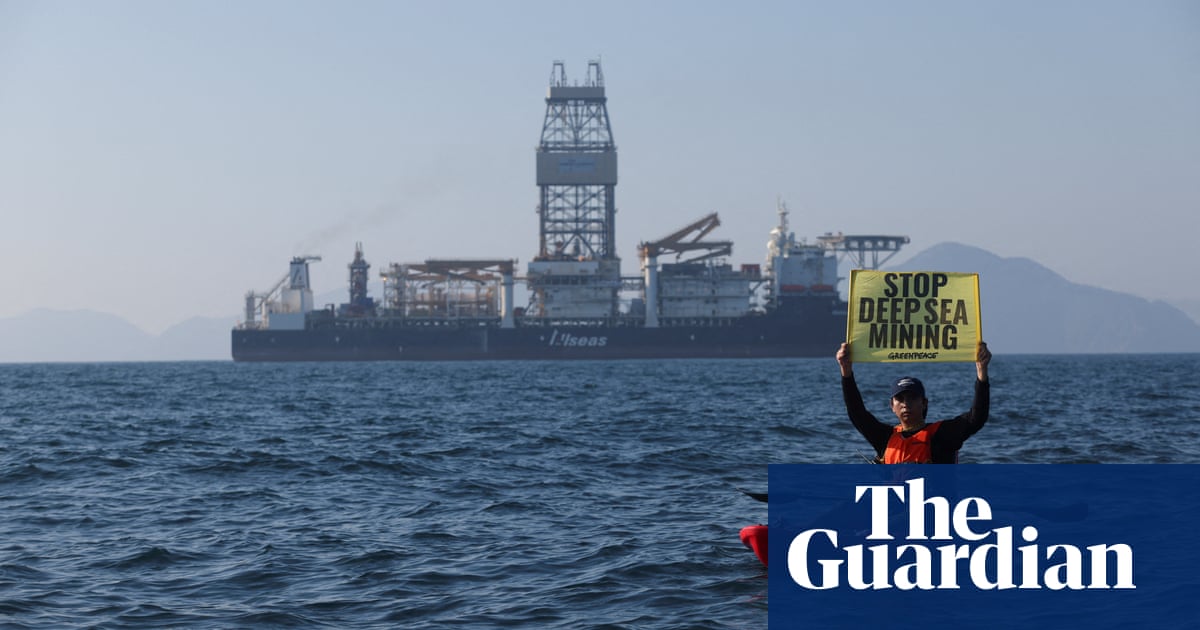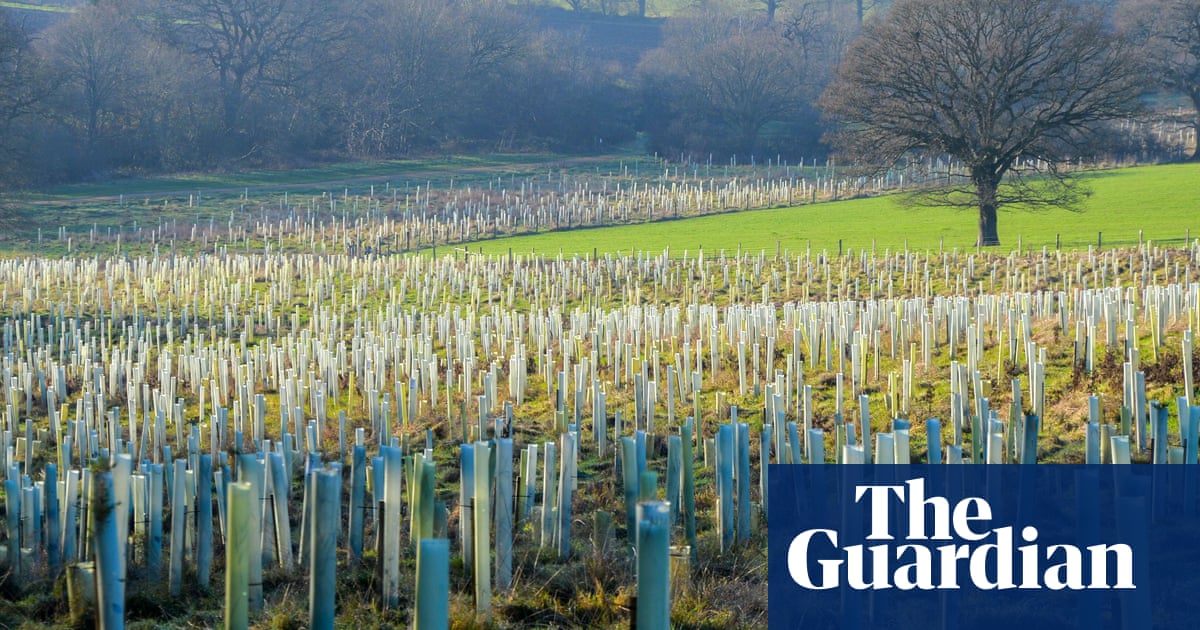In the final days of an election campaign dominated by migration, the likely new chancellor of Europe’s biggest polluter sought to assure voters that its economy ministry would not be occupied by NGOs. Instead, the conservative lead candidate Friedrich Merz posted on social media that it would be led by “someone who understands that economic policy is more than being a representative for heat pumps”.
Climate action barely featured on the campaign trail before Germany’s federal elections on Sunday – except when right-leaning parties used it to swipe at the Greens. Merz’s jab was at the tamer end of attacks aimed at the Green party candidate, Robert Habeck, the economy and climate minister who pushed through an unpopular law to promote clean heating, but is a sign of how far the political conversation around climate action has shifted.
Centre-right and far-right politicians have accused the Greens of turning Germany into an “eco-dictatorship” for policies that limit the burning of fossil fuels or require the public to change their behaviour. In a fiery speech the day before the election, Merz said he would do politics “for the majority who can think straight, and who also have all their marbles … and not for any green and leftwing nutcases”.
It is a far cry from the 2021 election, in which all parties bar the far-right AfD were keen to brandish their climate credentials by committing to cleaning up Germany’s economy by the middle of the century and keeping the planet from heating 1.5C (2.7F) above preindustrial levels.
By some measures, the Greens have survived a shift in German climate discourse that climate activists call a “witch-hunt”. They had a smaller drop in vote share than their former coalition partners, the market-liberal FDP and the centre-left SPD, despite years of political bashing and a decrease in public interest in climate action. They also lost fewer votes on Sunday than they did at the European elections last year, falling slightly from 15% to 12%.
Yet the result, which is likely to leave the Greens excluded from a future coalition, is further evidence that the green wave that swept Europe a few years ago was an outlier, rather than the new normal. Greens have been kicked out of government in Austria, Belgium and Ireland in recent months, echoing a recent trend of incumbents of all political stripes being punished at the polls. In Germany, young voters in particular abandoned the party in large numbers for the resurgent Die Linke (the Left), which won 1.2 million voters from the Greens and SPD.
On some counts, Die Linke’s climate policy is more ambitious than that of the Greens. The party wants Germany to reach climate neutrality by 2035 – in line with demands from activists such as Fridays for Future – and it emphasises the need for fairness in the energy transition. Snap analyses suggest its unexpected success was driven by targeting young progressives and running a highly successful social media campaign.
“The Left focused on a progressive campaign centred around their core issues like rising rents and the high cost of living,” said Jessica Haak, a political scientist at the University of Hamburg. “This has also contributed to their relatively strong performance in urban centres, where the Greens typically receive substantial support.
“In contrast, the Greens adopted a more moderate, centrist stance – especially regarding migration issues – which has sparked internal criticism, particularly from the party’s left wing.”
Although climate played only a minor role in voting decisions, the outcome looks likely to slow the speed of Germany’s energy transition. The AfD, which surged into second place with 21% of the vote, openly denies the climate crisis. It has railed against other parties for following a “Left-Green” ideological agenda and its co-leader, Alice Weidel, recently described wind turbines as “windmills of shame”.
after newsletter promotion
The election winners, the centre-right CDU/CSU union, have committed to climate neutrality by 2045 but increasingly aped the AfD’s opposition to policies to get there. They have attacked the Greens heavily for efforts to phase out gas boilers and combustion engine cars, or reduce pollution on farms, and blamed them for the country’s economic struggles.
At a meeting in Berlin last month, the German conservatives drove a push from the centre-right European People’s party to rip up green finance laws and water down farming rules as part of their opposition to “excessive regulation and bureaucracy”.
The push to weaken climate and energy policy in the name of competitiveness could run afoul of Europe’s efforts to increase its independence from Russia, China and – as Merz said in an election debate on Sunday – the US.
Manon Dufour, head of the Brussels branch of climate thinktank E3G, said climate action would be a “core pillar” of any credible security and resilience strategy. She said: “Germany can act as an engine for Europe, helping forge a path towards security and resilience. It can also act as a brake, bringing it to a standstill.”

.png) 2 months ago
36
2 months ago
36













































